John: One rescue I’ll tell you about. I was just totally green still. Here I am, my third year, I was a Jasper patrolman, I wasn’t quite a warden yet. A high visitor use area, backcountry area. I talked to three people from Edmonton, they were actually teachers, school teachers out of Edmonton, and were staying at the Wates Gibson Hut and they were planning on doing some scrambling. I spent a few years in the mountains at that point in time. I did a little bit of climbing but pretty minimal. I did some scrambling and whatnot, and I knew enough that “You guys don’t have any equipment, so make sure you stay off the ice.” I remember saying that specifically to them. So, around dinnertime the next day, I get a knock on the door and a frantic call. One of their people, they were actually brothers and a sister, and one was a teacher out of Edmonton, and actually was a teacher at the same high school that Lisa my wife went to, but she didn’t know them. So anyways one of them took a screamer, and fell about 500 feet, broken leg, and (became) hypothermic and was just on one of the sub peaks above the lake. I grabbed a pack, an old trapper nelson, I had an old sleeping bag and whatever first aid and I made a frantic call a couple of times to the Jasper Firehall. And I finally got through but it was sketchy, and I don’t know if they heard me or not. And I said, “I have a rescue, I need help, I need a helicopter” and I gave them a location on the other side of the lake near the Wates Gibson. I was heading there immediately. I tore across, and I was worried about the light. It was rainy, clouds were hanging low and I was running, racing across, as quick as I could get over there. As soon as I got to the scene I could hear the helicopter. I could hear the rotor wings of the helicopter coming in. I made sure they can see me and they were able to land nearby and out pops Toni Klettl and Garry Forman. I was so happy to see those guys. This guy was in really bad shape. He had a bad femur, he had some back injuries, he was hypothermic. I really don’t think I could have kept him alive that night. So, we wrapped him up, and we had to put him in the helicopter stretcher. We got him back there, and honestly, they landed right at dark. It was just incredible. I can’t remember; the helicopter must have been sitting in Jasper, I don’t know, but I was so thankful that helicopter got in. It would have been a total stressful night and I’ve had people die on me on the highway. That’s the hard part of the job, and they were able to get this guy out.
I remember a few weeks later seeing a letter from these people that were just so …. They thanked me and I actually kept the letter, it was such a cool letter. The helicopter sound was like the wings of an angel and how grateful they were that I acted so quickly. And the bottom line was I was able to get out on the radio so quick, and Garry Forman was able to get in there so fast.
SH: That’s a great story
John: Yes, my first big rescue and I was by myself. It happened and I came through. I do have some stories like that where I was there helping people. Being at Sunwapta we saw some sad things and a lot of them seemed to be recoveries up on the glacier. And every year it seemed we were pulling someone out of one of the holes there, and they’re all really sad stories. That was the hard part of the job. So, it was pretty nice when you can fly people out and get them out alive.
The highway wrecks were really bad too. That’s when we were running ambulance in Sunwapta and a lot of times you were the only guy at the station, and you’d get a call. For some reason it always seemed to happen up there. There were some real tough ones for sure, even on the Kootenay Highway, but it was part of our job. You’re there, you’re trained, and you did what you had to do until other services came in and took over.
(End of Section 3 – Tape 22:31)
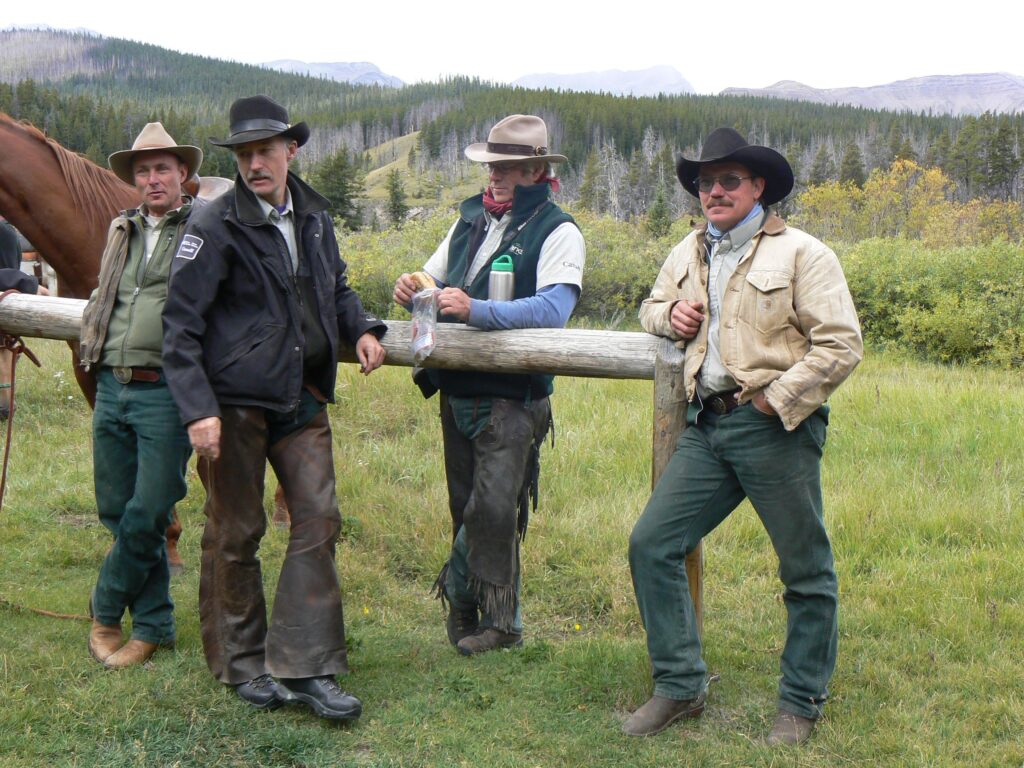 John Niddrie, Greg Horne, Dave Smith and Mark Cherewick.
John Niddrie, Greg Horne, Dave Smith and Mark Cherewick.
Part 4: 3:14 pm Do you ever miss being a Warden?
No, no. I was really happy to have my 35 years in and as soon as I turned 55, you know, things changed, and it was time for me to leave. I knew that, and I think the organization had this brand new look about it. The timing was right. It was just a little late for me and if things hadn’t changed, and they had to, I think I would have been happy to stick around for maybe another year or two, but, it was time to go. I knew it and was happy to go and I haven’t looked back.
SH: Do you have any photos of yourself as a Warden that you would like to donate to the project, or that we may copy? Do you have any artifacts/memorabilia that you would like to donate to the project (Whyte Museum)?
I’ve got some really good images. I always have my camera with me. I got some good images of myself and other people and I’d be more than happy to donate them. I did a couple little …. I sent it to the Warden Alumni and they posted it on their site. One was a little story about Trapper Bill and then I did one of a rescue that I was involved with on Mount Bridgeland, with Gerry, Darro Stinson, Pat Sheehan, Greg Horne and Rick Ralf. It was a really good one because no one died, and it had everything in it. I photo documented a good part of it. I lent the images out, two of my best images I lost unfortunately, but I did a whole photo story and I’ve got some really good shots of Darro and Gerry and I’ve given it to the Warden Alumni This winter I started going through my slides, digitizing them, and I’ll keep that in mind. I’m more than happy to share some of these old warden pictures.
SH: But if you have some pictures of yourself for this story ….
John: I know I’ve got a couple but honestly, I don’t have too many pictures of myself because I was always the one taking the pictures. That’s one of the great opportunities I had, with my family was out in the backcountry.
SH: Do you want to talk about that? We’ve all said that – the opportunity to spend time with your family.
John: I did some amazing trips with my kids in the parks. Thomas was born when we were living at Sunwapta Warden Station and when we moved to Decoigne, of course, he started riding his first horses when we were at Decoigne, and he was two years old. And we lived for a year at Kootenay Crossing so they got a little bit of exposure. Nick was just a baby at Kootenay Crossing. He was less than a year old when we finally moved to town. But anyways, when the kids got older I was fortunate enough to get the Cyclone district. It was great, and this was ‘98, ’99, I had two years at Cyclone/Red Deer Lakes District, and I was able to get my kids out there. Tom was a young teen, and Nick was probably ten years old. I took them each on separate trips, and they were good help. Some people nowadays might think it’s a big hindrance, but it did not slow me down at all, because I knew they could do the days that I needed to do, and it was such an awesome experience to have those guys out there and teach them, and it made them who they are now, which helped me. The Warden Service, as a young man, made me the person that I am now. It was huge.
Tom, my oldest, works for Parks Canada, he’s out of Lake Louise, as a problem wildlife dude, and Nick is a forester who has moved to north central BC and he will be living off the land and no doubt off the grid in the future. Those opportunities to get out there and work and live and see how we did things back then, had a big impact. I did do one family trip too per season during the season and it was great too. Those cabin walls and windows, all these jobs, the kids would pitch in too and we’d do little maintenance jobs that a single warden guy never seemed to get around to doing, but you’d bring the family in and some of that stuff, when you get the rainy days, we’d scrub the cabin walls, or we’d do all the painting. Little Pipe, we painted … when I had the family out I had these big projects to do that they could help with, we painted all of Little Pipe that hadn’t been painted in about 25 years. Things like that; a big hitching rail to be dug out or an outhouse (hole) to be dug. Those kinds of jobs would get done when the family was about.
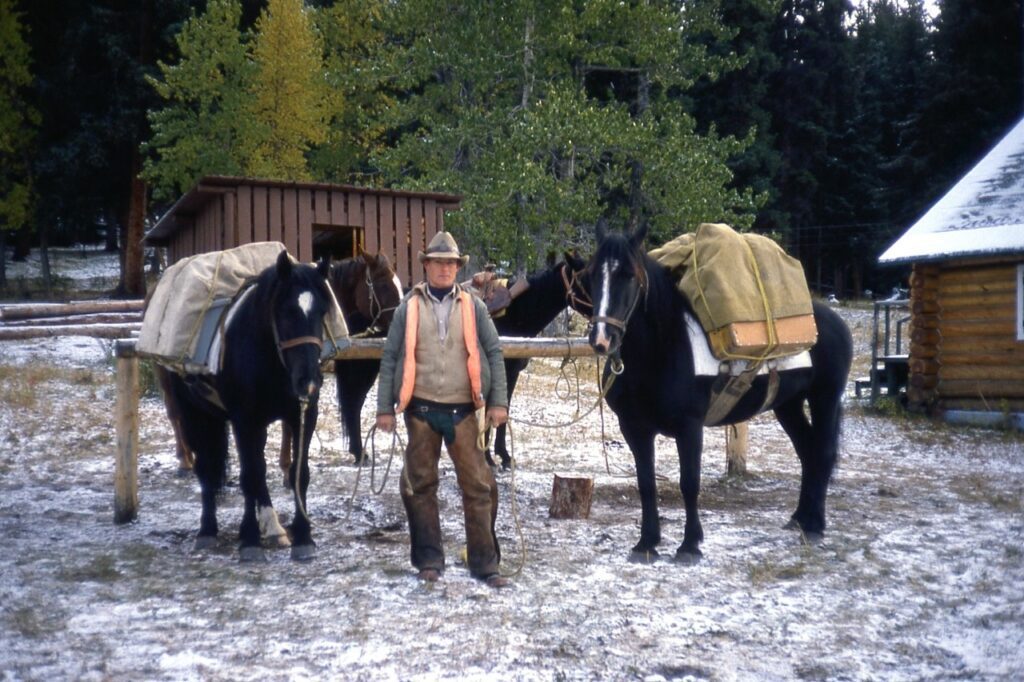
John ready to hit the trail at Isaac Creek.
SH: Is there anything I haven’t asked you that you think I should know about the Warden Service?
John: You probably know more about it than I do, so no.
SH: What are you doing in retirement?
John: I still love the wilderness areas in national parks. I still do at least one of two trips a year in national parks, usually with horses, because I have my own horses, and I’m camping now. It’s kind of sad to be riding by all these empty patrol cabins when I think of all the work I’ve done and all the maintenance, and what I could be doing. I’d love to be involved, anything from doing some wildlife work or helping out, but that’s not the case and I don’t lose any real tears over it. I’m totally contained and I got some good horses of my own and lucky that I can still do some of these trips. I don’t only do them in national parks, I do them in other wilderness areas too. And skiing, I probably do more backcountry skiing when I go to the parks. I don’t know how, it’s tough for the new folks. I can’t believe how busy front country and mid country areas are now since I retired. It’s probably been close to ten years. The amount of use …. I went up to Maligne Lake last summer, and once you get on the lake and you’re camping out there, it’s all regulated pretty much with the number of sites, but that area around Maligne Lake I just could not believe the amount of people. It’s crazy and I don’t know what they are going to do in the future. And that’s just Maligne Lake, I’m not talking Lake Louise or Banff which is even worse. It’s crazy.
SH: Is there anyone else I should talk to? You mentioned Hal Morrison.
John: Especially law enforcement – that was huge. It was a big case and Parks really got a feather in their cap with that one. That was really good. He brought in the right people. That was really, really good. (CP Rail Contaminants)
SH: Any other stories you want to talk about? You had some good ones.
John: You know everybody does after thirty some years. I want to find some good ones. I want to write some down, and I’m going to write a few down. I know the Warden Alumni were looking for some stories. I’m doing it more for my family and then I thought if I’m going to do them for my kids I may as well throw them out there. Some of the ski trips we used to go on, they were incredible. Being able to get out with some of these guys like Willi Pfisterer or Peter Fuhrmann.
Do you have a Peter story? Everybody told Willi Stories.
John: Well Peter always took chances. We traversed Mount Victoria once and there was a lot of brand new people. It was Peter and Clair (Israelson) and Peter was running the show. And this was a beginner/intermediate type school. There was so many of us that we ended up short roping a good part of it. And there were areas there where we should have been belaying. And we were … it was scary. You really had to trust your partner. There were places there where I wished I was not roped up. I would have been better off … I should have been belayed but I did not want to be short roped. Because, if you’re short roping one guy needs to be protected at all times and there were times there where neither of us were, so if you fell your buddy was going to go to. Again, we got late and had to bivvy, some of us had little bivvy sacs, but we had no real bivvy gear with us. But, everybody survived, everybody made it.
I remember going out on the Wapta (Icefield). There was just a few of us, and Peter ended up grabbing the food and whatnot. Remember these packages of food that we used to just through in and boil up. They weren’t freeze-dried, and we ate a bunch of them. Most of us got sick on them, we all got the shits. Peter was seeing how long the shelf life would be good for. They were like a couple of years beyond their shelf life. It was a foil package of food, quick and dirty.
SH: Funny. Well I think we did well John.
John: Yes
End of Interview – (Tape 13:02)
This interview was conducted by Susan Hairsine
Susan Hairsine worked for Resource Conservation and Operations in Mt. Revelstoke/Glacier, Jasper and Banff National Parks, as well as for Public Safety in Western and Northern Region for over 30 years. She obtained funding for an oral history of Parks Canada’s avalanche personnel and oversaw the successful completion of the project. Her experience working with several the interviewees during their careers has been an asset to the current project. She was also the Executive Assistant to the Chief Park Wardens of Jasper and Banff National Parks.
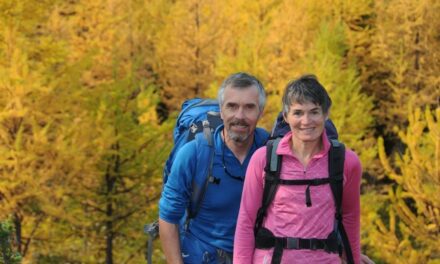
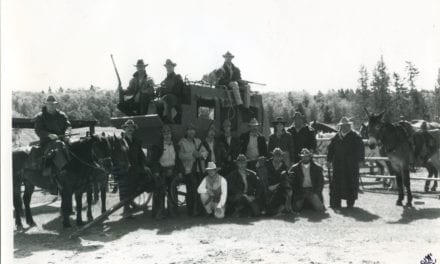
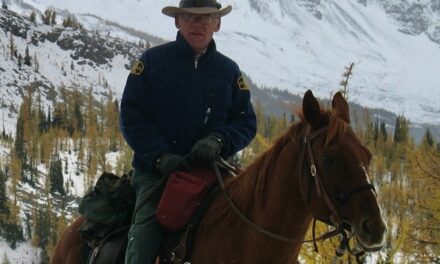
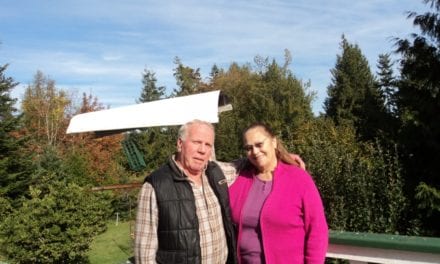
Hi John,
Reading back on your history with Parks Canada Warden Service brought back a couple memories for me as well. I worked in Kootenay National Park in early years 1986-1987 on the gardening and trail crew. Later after attending forestry and wildlife tech school I got a seasonal park warden GT 1 position and spent time working in Lake Louise, Kootenay, Pacific Rim. However, it was the short time spent working with you (trapping bears) on the Banff-Kootenay-Yoho grizzly bear study that prepared me to become a Park Warden. As time would have it, I moved on to other natural resource careers working in the Yukon and BC. You were an influence both professionally and personally as I now near my own retirement. Grateful for these experiences. Thank you for this.
Great interview John. Happy to have met you a couple of times and chased pucks and downed beers at the Warden hockey tourney…. Your thoughts , stories and recollections and those of many others bring back so many good memories of an era many of us were so fortunate to experience , create and enjoy. It was a brotherhood for sure. Not so much these days. . sad but true.. Take care.